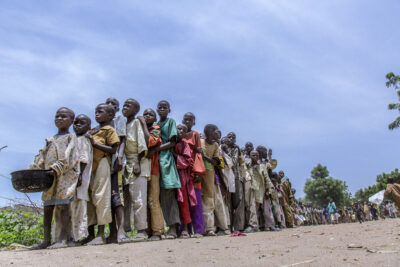Contemporary electoral contests are now synonymous with increased production, distribution, and consumption of false and misleading narratives about candidates, political parties, electoral management bodies, the voting processes, and the announcement of winners and losers. Electoral disinformation refers to the deliberate spreading of false and misleading information related to candidates, political parties, electoral management bodies, electoral courts, observer missions, and electoral processes (such as voter education, nomination, voting, tabulation, and announcement of results).
Electoral disinformation is aimed at manipulating voter and civic information, thereby dampening participation and degrading trust in election-management bodies. It is deliberately produced and distributed to influence the audience and generate negative attitudes and behaviors related to the administration of elections and the electoral outcome. Disinformation before, during, and after elections undermines public trust in democracy, exacerbates social tensions, and perpetrates political authoritarianism.[1]
Although the upsurge in electoral disinformation peaked during the 2016 United States of America elections, which saw Donald Trump elected as the forty-fifth US president,[2] coordinated electoral manipulation campaigns have been part of the rituals of electoral democracy for a long time. In Africa, a spike in online electoral mis/disinformation was heavily reported during the Cambridge Analytica scandal that accompanied the 2017 Nigerian and Kenyan presidential elections.[3] Cambridge Analytica, previously known as Strategic Communication Laboratories, was instrumental in managing the 2013 and 2017 Kenyan electoral campaigns for Uhuru Kenyatta, where unprecedented levels of online electoral disinformation were documented. Ever since the much-publicized scandal, significant scholarly and policy attention has focused on tracking, fact-checking, and monitoring patterns, trends, and quantities of disinformation during elections. Zimbabwe has not been unique in this regard.[4]
The country witnessed significant electoral disinformation during the 2013 and 2018 elections. At the center of this national information disorder were cyber brigades or online trolls, known as “Varakashi” and “Nerrorists.”[5] These trolls colonized social media platforms such as Twitter (now X) and Facebook with well-coordinated and generously resourced digital campaigns aimed at sowing seeds of distrust in the electoral process and discrediting other candidates’ and parties’ reputations.
The same trend was witnessed during the August 23, 2023, elections in Zimbabwe, where electoral disinformation took center stage before, during, and soon after the voting process. Most of the false and misleading narratives were circulating in both offline and online spaces. WhatsApp, Twitter (now X), and Facebook were the major conduits through which disinformers decampaigned, discredited, and delegitimized other candidates and political parties. The mainstream media, alternative online outlets, and diasporic media platforms were also heavily involved in the production and distribution of false and misleading information. The country witnessed both intra-party and inter-party disinformation campaigns. Intra-party disinformation campaigns were at their peak during the primary election and nomination processes. Once the nomination process was over, the issue of double candidates in some political parties led to organized disinformation campaigns on social and mainstream media platforms. Inter-party disinformation campaigns mostly pitted the Zimbabwe African National Union – Patriotic Front (ZANU PF) against the Citizens Coalition for Change (CCC).
Similar to the July 2018 elections, in August 2023 most of the generated and circulated false narratives related to imposter content.[6] For instance, celebrity journalists were impersonated on Twitter, and imposter content related to the nomination courts in Bulawayo and Harare was also circulated. Imposter content related to court judgments was also circulated when the twelve Bulawayo Member of Parliament candidates for the CCC were initially barred by the high court from contesting for filing their papers outside the prescribed cut-off time. After the judge postponed the hearing to another day, false tweets claimed that the court challenge by the twelve CCC candidates had been dismissed by the high court.
During the campaign period, imposters also shared false and misleading videos and audios. For instance, in one video false context was used to present Nelson Chamisa, the presidential candidate of the opposition CCC, allegedly making controversial statements about land reform in the event of his party’s election victory. This was fact-checked and found to be manipulated content. In another video, ZANU PF’s aspiring candidate for Bikita South, Energy Mutodi, was alleged to have brandished a gun during a CCC rally in Gutu.
The elections were also characterized by an abundance of fabricated content, the most harmful of which circulated on the eve of the elections. Posters and leaflets, allegedly generated by Chamisa, carried a message supposedly from the CCC leader, instructing his supporters not to vote because the elections were already rigged.
Figure 1: Fake poster

These posters were circulated mostly in opposition strongholds such as Harare and a few other urban constituencies. The CCC debunked the message on social media, but people had already read it offline. CCC supporters suspected that the posters were produced by Forever Associates Zimbabwe (FAZ), an affiliate of the ruling ZANU PF. FAZ, which is registered as a private nongovernmental organization, played an instrumental role in both offline and online electoral disinformation campaigns.
Soon after the voting process, citizens were inundated with a barrage of false and misleading news about the election results. Most of these false results were circulated on WhatsApp and Twitter (now X). The disinformers circulated images of fake V.11 forms from the 2013 and 2018 elections.[7] This trend of recycling old fake results is not unique to Zimbabwe but has been observed in other electoral contexts.
In an attempt to discredit the Zimbabwe Electoral Commission (ZEC) as an impartial and independent body, disinformers generated false reports claiming that polling agents and observers were being recalled to sign new V.11 forms.[8] This was presented as calculated attempts by the ZEC and the ZANU PF to rig the elections, thereby subverting the will of the people.
Another kind of electoral disinformation related to the generation and circulation of manipulated videos, audios, and text messages. In one video, Emmerson Mnangagwa, the ZANU PF’s presidential candidate, was alleged to have conceded defeat to Chamisa before the ZEC announced the final results.
In the post-election period, citizens were also subject to fake cabinet lists bearing the president’s signature. One such list had names of new members of Parliament (such as Tafadzwa Mugwadi, Tatenda Mavetera, and Ngonidzashe Mudekunye) and the old guard (such as Kindness Paradza, Frederick Shava, July Moyo, and Paul Mavima) of ZANU PF dominating the new cabinet. When Mnangagwa eventually announced his cabinet, some of the names on the fake cabinet lists were actually confirmed as ministers. It is believed that the fake cabinet list was a ploy by ZANU PF to test public sentiment by releasing an unofficial list before the formal one. These included MPs like Tatenda Mavetera. In the aftermath of the disputed elections, the disinformers also circulated false congratulatory messages from United States President Joe Biden.
Election observer missions were not spared from these targeted disinformation campaigns. These include the European Union observer mission, the Carter Center, and the Southern African Development Community (SADC) observer mission. As soon as the SADC observer mission, led by Dr. Nevers Mumba—former Zambian vice president—released its preliminary statement condemning the conduct of elections in Zimbabwe, the head of mission was subjected to a barrage of false and misleading information by state-owned media houses and social media trolls. This coordinated attack on Mumba led to a diplomatic fallout between Zambia and Zimbabwe.
Electoral disinformation wreaked havoc both offline and online during the 2023 elections. Foreign and domestic actors were instrumental in producing and distributing false and misleading information about the candidates, political parties, electoral management body, observer missions, and the conduct of the security agencies. These have negative implications for the legitimacy of the government and signify continued democratic regression in Zimbabwe.
[1] Marlene Mauk and Max Grömping, “Online Disinformation Predicts Inaccurate Beliefs about Election Fairness among Both Winners and Losers,” Comparative Political Studies 0, no. 0 (September 2023), https://doi.org/10.1177/00104140231193008.[2] Hunt Allcott and Matthew Gentzkow, “Social Media and Fake News in the 2016 Election,” Journal of Economic Perspectives 31, no. 2 (Spring 2017): 211–36.
[3] Brian Ekdale and Melissa Tully, “African Elections as a Testing Ground: Comparing Coverage of Cambridge Analytica in Nigerian and Kenyan Newspapers,” African Journalism Studies 40, no. 4 (November 2019): 27–43.
[4] Dumisani Moyo, Admire Mare, and Hayes M. Mabweazara, “Editorial: Social Media, the Press, and the Crisis of Disinformation in Africa,” Communicatio 46, no. 4 (2020), 1–6.
[5] Admire Mare, “Twitter, Elections and Gendered Disinformation Campaigns in Zimbabwe,” in Digital Technologies, Elections and Campaigns in Africa, eds. Duncan Omanga, Admire Mare, and Pamela Mainye (London: Routledge, 2023), 25–45.
[6] Admire Mare and Trust Matsilele, “Hybrid Media System and the July 2018 Elections in ‘Post-Mugabe’ Zimbabwe,” in Social Media and Elections in Africa, vol 1., Theoretical Perspectives and Election Campaigns, eds. Martin N. Ndlela and Winston Mano (Cham: Palgrave Macmillan, 2020), 147–76.
[7] Admire Mare, “Sites of Manufacturing Consent or Resistance? Post-2000 Media and Political Contestation in Zimbabwe,” in Oxford Handbook of Zimbabwean Politics, eds. Miles Tendi, JoAnn McGregor, and Jocelyn Alexander (Oxford: Oxford University Press, 2020).
[8] The polling station returns (V.11 forms) form part of election materials and copies used by the electoral management body to process election results.












